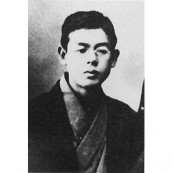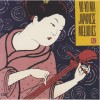Composers
Rentarō Taki was a pianist and one of the best-known composers of Japan.
Taki was born in Tokyo, but moved to many places during his childhood owing to his father's job. He graduated from the Tokyo Music School in 1901. One of his famous pieces is Kōjō no Tsuki, which was included in the songbook for junior high school students, along with the Hakone-Hachiri . Hana is a well-known song, too.
In the same year, Taki went to the Leipzig Conservatory, Germany to study music further, but fell seriously ill with tuberculosis of the lungs and came back to Japan. He lived quietly in the country afterwards, but soon died at the age of 23. His posthumous work is a solo piano piece called Urami , which he wrote four months before he died. It is said that he laid the meaning of "regret" in the title of his last piece.
German rock band Scorpions did a cover of Kōjō no Tsuki on the 1978 album Tokyo Tapes.
Argentinean folk group Los Cantores de Quilla Huasi recorded a version of "Kojo no Tsuki".
Refine by search
view allBiography
Rentarō Taki was a pianist and one of the best-known composers of Japan.
Taki was born in Tokyo, but moved to many places during his childhood owing to his father's job. He graduated from the Tokyo Music School in 1901. One of his famous pieces is Kōjō no Tsuki, which was included in the songbook for junior high school students, along with the Hakone-Hachiri . Hana is a well-known song, too.
In the same year, Taki went to the Leipzig Conservatory, Germany to study music further, but fell seriously ill with tuberculosis of the lungs and came back to Japan. He lived quietly in the country afterwards, but soon died at the age of 23. His posthumous work is a solo piano piece called Urami , which he wrote four months before he died. It is said that he laid the meaning of "regret" in the title of his last piece.
German rock band Scorpions did a cover of Kōjō no Tsuki on the 1978 album Tokyo Tapes.
Argentinean folk group Los Cantores de Quilla Huasi recorded a version of "Kojo no Tsuki".



